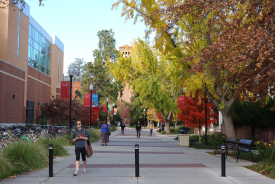Researchers at the University of Illinois at Chicago College of Medicine discover that the dorsal anterior cingulate cortex of the brain needs to work harder to combat negative emotions of people with sleeping problems. Consequently, insomniac individuals have higher risks of developing mental illnesses. This report has been published in the journal "Depression and Anxiety".
In the report, three out of four samples met the criteria for significant sleep disturbance. Now, these individuals who have shown poorer sleep routines were observed to have fewer brain activities in the dorsal anterior cingulate cortex. The lesser activity there is in the said region of the brain, the harder it is to produce positive thoughts.
Heide Klumpp, the lead researcher, is an assistant professor of psychiatry at the University of Illinois at Chicago. Her team, per Science Daily, utilized functional MRI to measure brain activities in different regions in the head. The process was done while the subjects were challenged with an "emotion-regulation" task.
Part of the experiment was showing of disturbing images of violence such as war or vehicular accidents. For one, the samples were required to just look at the photos without trying to control their feelings. Simply put, they were prohibited to "reappraise" what they saw in a more positive way of thinking.
Klumpp noted that "reappraisal" requires mental energy and is hard to achieve for people with anxiety or depression. These disorders are usually triggered by chronic negativities. Therefore, to see the good in bad things is often difficult for mentally stressed patients.
Meanwhile, News Week reported that a different research published in the journal "Psychiatric Services" recently claimed that anxiety and depression have reached an all-time high for Americans. Based on the analysis of federal government data from 2006 to 2014, the study concluded that about 8.3 million people suffer from serious psychological distress (SPD). This makes up 3.4 percent of adult Americans, which is 40 percent higher than the previous survey done 10 years ago.
Going back, Klumpp and her team tested 78 patients (18 to 65 years old) who had been diagnosed with anxiety or depression. These people also completed a questionnaire to assess their sleeping patterns over the previous month. A device called "actigraph" measured their sleep efficiency over a period of six days.
© 2025 University Herald, All rights reserved. Do not reproduce without permission.








